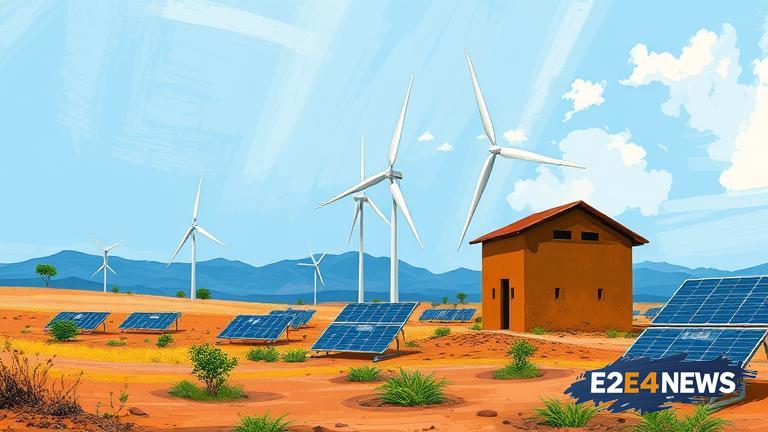The African continent is witnessing a significant shift towards renewable energy, driven by the need to address the pressing issues of energy access, climate change, and sustainable development. With many countries still struggling to provide reliable and affordable electricity to their citizens, renewable energy has emerged as a viable solution. Solar and wind power are leading the charge, with countries like South Africa, Morocco, and Egypt making significant investments in these sectors. The African Union’s ambitious goal of achieving 100% access to electricity by 2030 has further accelerated the adoption of renewable energy. Governments, international organizations, and private sector companies are collaborating to develop and implement renewable energy projects across the continent. The benefits of renewable energy are numerous, including reduced greenhouse gas emissions, improved air quality, and enhanced energy security. Moreover, renewable energy can create jobs, stimulate local economies, and contribute to poverty reduction. However, the transition to renewable energy also poses challenges, such as the need for significant upfront investments, technology transfer, and capacity building. To address these challenges, African countries are exploring innovative financing mechanisms, such as green bonds and crowdfunding. The private sector is also playing a crucial role, with companies like Vestas, Siemens Gamesa, and Goldwind investing heavily in African renewable energy projects. International cooperation is also on the rise, with countries like China, the United States, and the European Union providing financial and technical support to African countries. The African Development Bank has also launched several initiatives to support the development of renewable energy in Africa. Despite the progress made, significant challenges remain, including the need for better energy storage technologies, grid infrastructure, and policy frameworks. Nevertheless, the momentum behind Africa’s renewable energy revolution is undeniable, with the continent poised to become a global leader in the transition to a low-carbon economy. As the world continues to grapple with the challenges of climate change, Africa’s renewable energy revolution offers a beacon of hope for a sustainable and prosperous future. The continent’s unique combination of abundant natural resources, growing energy demand, and innovative spirit makes it an ideal location for renewable energy investments. With the right policies, investments, and partnerships in place, Africa can unlock its full renewable energy potential and achieve a brighter future for its citizens. The time for action is now, and the world is watching as Africa takes the lead in the global transition to renewable energy. The future of energy in Africa is renewable, and it is an exciting time for the continent. As the years go by, we can expect to see even more innovative renewable energy projects and initiatives emerge, driving growth, development, and prosperity across Africa. With its abundant solar and wind resources, Africa has the potential to become a global hub for renewable energy, and the world will be watching as the continent continues to make strides in this sector. The impact of Africa’s renewable energy revolution will be felt far beyond the continent, as it contributes to global efforts to reduce greenhouse gas emissions and mitigate climate change. As the world continues to transition to a low-carbon economy, Africa’s renewable energy revolution will play a critical role in shaping the future of energy production and consumption. In conclusion, Africa’s renewable energy revolution is a story of hope, innovation, and determination, and it has the potential to transform the continent and the world.
